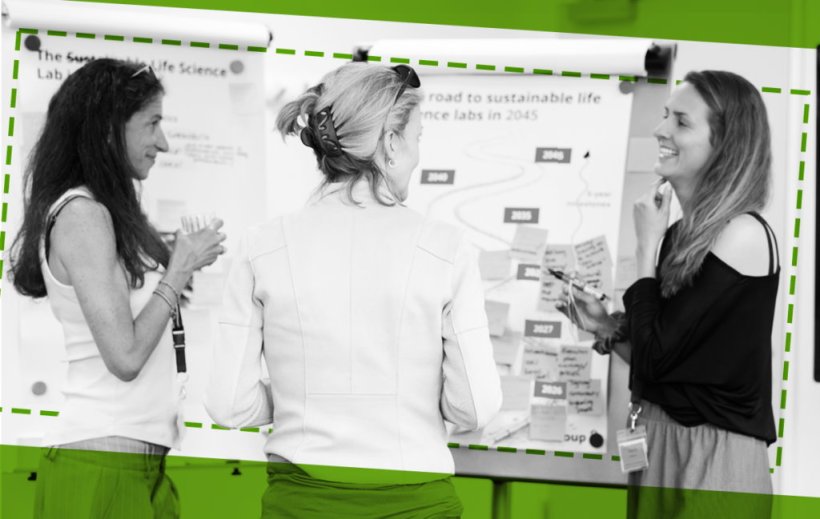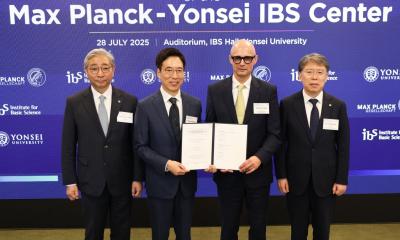
Image credit: EMBO/Igor Jukic
News • Framework for funding
The “Heidelberg Agreement”: A step towards more sustainable research
A significant step forwards in changing research practices towards sustainability has been taken with the publication of the Heidelberg Agreement on Environmental Sustainability in Research Funding.
The agreement, which is available online, provides a framework for research funders to play an active role and incentivize sustainable practices in research. It outlines principles for transitioning to a more sustainable research system and practical recommendations on how to implement sustainability in funding schemes.
A key focus of the Heidelberg Agreement is to ensure that research funders take a proactive approach to promoting sustainability in scientific research. It calls for funders to set ambitious sustainability goals; share principles for approaching sustainability in research funding based on innovation, experimentation, partnership, diversity and co-creation; highlight the importance of sustainability in their schemes; and support the development and adoption of tools that help researchers to integrate sustainability.
Recommended article

Article • Information channel
Sustainability in healthcare
The time when 'going green' in healthcare only referred to the colour of surgical gowns are long past: reducing CO₂ emissions, improving waste management and saving energy are essential for modern hospitals. Keep reading to find out what medical institutions can do to become more sustainable.
The Heidelberg Agreement involves multi-stakeholder alignment. Representatives from European funding agencies, research organizations, grassroots initiatives, social scientists and experts from nine different European countries collaborated on its development. The agreement has been endorsed by the Austrian Science Fund (FWF), Dutch Research Council (NWO), EMBO, European Molecular Biology Laboratory (EMBL), Foundation for Polish Science (FNP), French National Research Agency (ANR), German Research Foundation (DFG), Green Algorithms Initiative, Green Labs Netherlands (GLN), Institute for Bioengineering of Catalonia (IBEC), Medical Research Council (MRC), National Centre for Scientific Research (CNRS), UK Research & Innovation (UKRI) and Wellcome.
The collaboration that led to the agreement was initiated during the workshop Funders’ Role in Promoting Environmentally Sustainable Lab Research hosted by EMBO in Heidelberg, Germany, in May 2024.
The agreement marks the beginning of a wider European effort towards environmental sustainability in research funding. It serves as an invitation to the international research community to work together on this critical issue, the organizers point out.
Source: EMBO
23.10.2024





